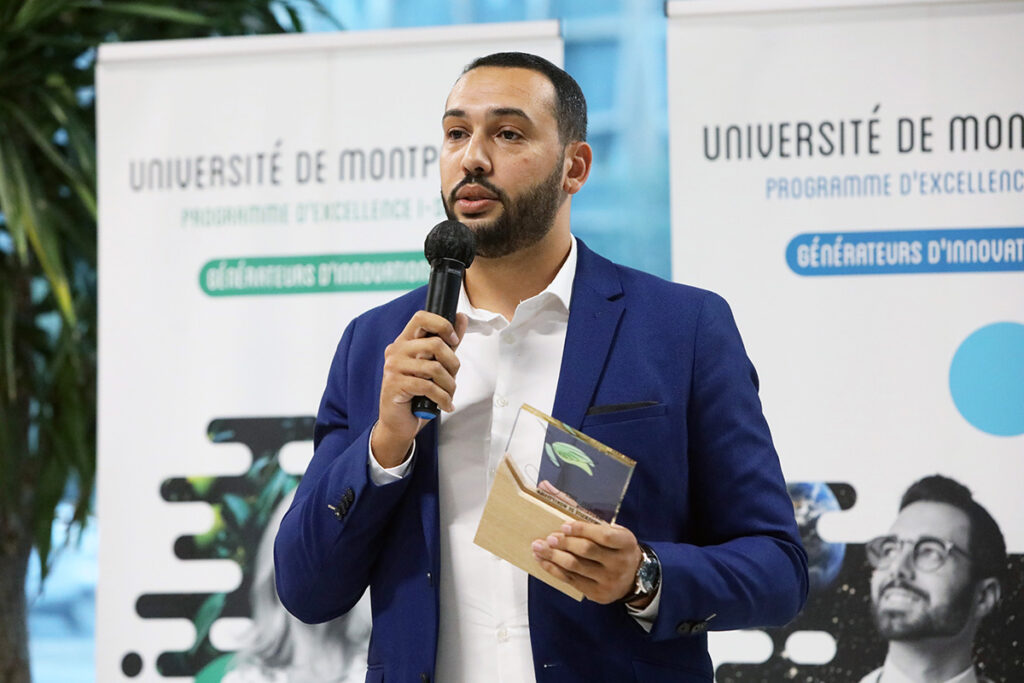Artificial bones, natural success
Synthetic bones with innovative properties for patients who need dental implants or those who have undergone surgery for bone tumors—this is the promise of Habib Belaid's work, which has been recognized with the University of Montpellier's Innovation Award.

Habib Belaid, a postdoctoral researcher atthe European Membrane Institute in the "DM3" department, is the winner of the 2021-2022 Innovation Award for the Chemistry Division. This award recognizes his original work in the field of synthesis and characterization of biomaterials for healthcare applications. Biomaterials? "They are composite materials synthesized from polymers capable of repairing or replacing tissue ," explains the researcher.
These materials have the unique feature of being 3D printable, which opens up innovative possibilities, particularly in the field of healthcare. "This polymer is being developed as a bone substitute," explains the researcher. Artificial bone that could be used, for example, in orthopedics and oncology.
Filling the bone deficit
When a patient has a bone tumor, it must be resected, i.e., removed, leaving a "void" in the bone. This is where Habib Belaid's work offers a minor revolution."To fill this bone deficit, the surgeon scans the bone to accurately model its morphology. Then, the missing part of the bone can be precisely 3D printed to fill the bone deficit."
This synthetic bone not only replaces the original tissue, it also has specific properties that can promote healing. "When synthesizing biomaterials, an active ingredient can be added. For example, the one used in cancer treatment has an anti-tumor effect that limits the risk of recurrence."
This smart polymer also boosts bone regeneration before being absorbed, allowing the natural bone that has been rebuilt to resume its normal function. This is a minor revolution for both doctors and patients, who will nevertheless have to wait a little longer before they can benefit from it. "The project is in the early stages with CNRS Innovation, and we plan to launch the first clinical trials within five to six years."
Customize each fabric
"My core business is the formulation of 3D-printed biomaterials to customize each bone tissue,"explains the researcher. Habib Belaid also applies his expertise in the formulation of functionalized biomaterials to dentistry. "We met with dental surgeons who explained that sometimes, following tooth extraction, patients cannot benefit from dental implants due to a deficiency in the jawbone."
As in orthopedics, the dental surgeon will scan the patient's jaw in order to model it and enable 3D printing of artificial bone that will serve as a support for the implants. "Here too, the polymers are functionalized and have antibacterial properties that limit the risk of infection following the operation. We are currently filing a patent for the formulation," explains Habib Belaid. To further this research, the researcher plans to launch a start-up called "NEXTMAT 3D." Preclinical trials are already underway, and clinical trials on patients are expected to begin within two to three years.